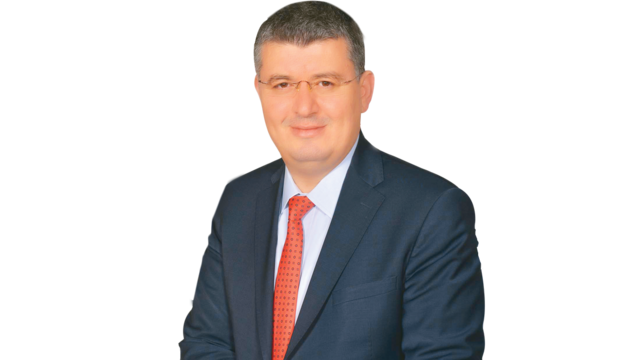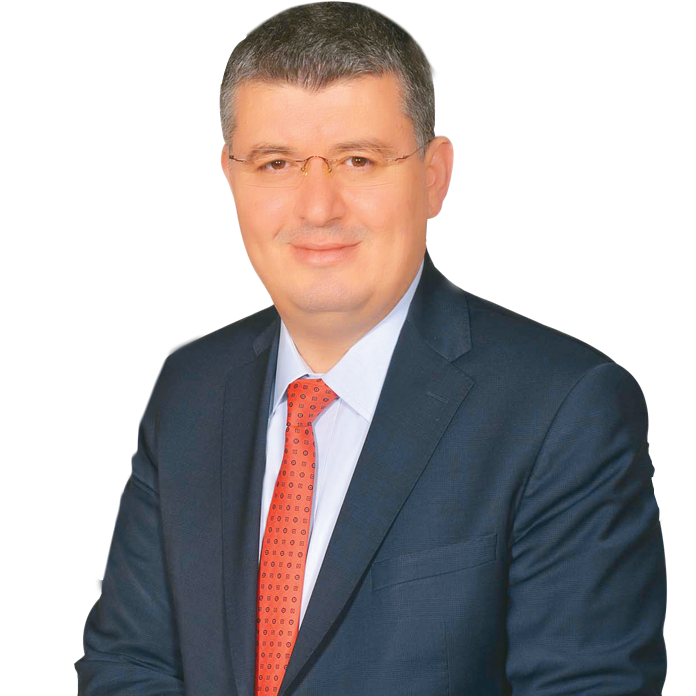All roads lead to Turkey: Biden scrambles to solve EU’s gas conundrum

Just a few days ago, Germany's new chancellor and Merkel's successor Olaf Scholz was hosted by U.S. President Joe Biden in Washington.
The focus of the Q&A session during Scholz and Biden's press conference was whether the Nord Stream-2 pipeline should be activated, which has long been a serious sticking point in the U.S.-Russia-Germany triangle.
Biden seems hellbent on preventing the commissioning of this already-built pipeline waiting to be used for gas transportation, throwing a spanner in the works.
He said at the press conference, while the German Chancellor was sitting right next to him:
“There will no longer be a Nord Stream-2. We will bring an end to it.”
When Biden said that, all eyes then turned to Chancellor Scholz.
The German chancellor, on the other hand, instead of acting the way Biden had expected, gave no clear answers to the blunt questions about Nord Stream-2, choosing to dodge them without giving a binding answer.
Opting to continue his speech in English, he looked at Biden and said, "Whatever we will do, we will do it together."
This, in a nutshell, signifies that their differences of opinion could not be bridged.
At the same press conference, Biden, noticing Scholz's flip, said, "Germany is completely reliable, completely, totally thoroughly reliable. I have no doubt about Germany at all." Although he put on an exaggerated show of "ally affection," the reality couldn’t be more different.
Advertisement
Until recently, the Germans were able to stand up to the Americans regarding this project.
They even openly displayed their disdain to the U.S. ambassador to Berlin, who strutted around like a colonial official during the Trump era.
But, now, things have changed.
The fact that the Russian military threat is mounting due to the Ukraine crisis has put the Berlin administration in a pickle.
As we all know, thanks to the agreements made after the Second World War, Germany’s security was entrusted to the U.S.
In other words, although it is an economic giant, it is not possible to talk about military deterrence when it comes to Germany.
Therefore, the U.S. is now using this security guarantee as a “trump card” in the Nord Stream-2 project, forcing the Berlin administration to make a choice.
The German government, on the other hand, always has the following excuse at the ready: "If the Russians cut our gas in such a situation, we will freeze and our economy will collapse."
At this very point, the Catch-22 of how to meet the gas demands of the European continent, which needs 500 billion cubic meters of natural gas annually (approximately 10 times that of Turkey), is one that requires an urgent solution.
Advertisement
It is common knowledge that the U.S. has taken certain steps to meet the gas needs of Europe, especially Germany, by looking into options that aren’t Russia.
A few weeks ago, Qatari Emir Tamim was hosted at the White House, as possible solutions for transporting Qatari gas to Europe were discussed.
(In my previous column, I had mentioned that one of the goals behind the U.S. build-up in the Greek port of Alexandroupoli is to support Europe's gas needs by bringing liquefied gas to this port)
If, as the U.S. wishes, no development increases Europe's natural gas dependency on Russia, and the Nord Stream-2 pipeline is not commissioned, it seems all but inevitable that more permanent and effective solutions will be necessary instead of short-term and temporary fixes.
And that’s where Turkey's invaluable position in terms of being an energy transition route comes into play.
It is not yet clear what will take place in the short term, but if new energy corridors are to be established from the East and South to the North and West in the medium and long terms, it is possible to say that all roads lead to Turkey due to its geographical advantage.
The fact that the U.S. has recently withdrawn its support for the infamous East-Med project, much to the chagrin of many in Greece, must be directly related to this situation.
There’s a growing consensus that the most economical and convenient line for transporting Israeli gas to Europe is via a pipeline that will pass through Turkey.
We can just come out and blatantly say that the most important item on the agenda of Israeli President Herzog, who is expected to visit Turkey next month, is energy.
In recent statements regarding the normalization of relations with Israel, Turkish President Tayyip Erdoğan referred to the rapprochement achieved through energy cooperation in the past.
Of course, the establishment of such an environment of cooperation should not be interpreted as the Erdogan administration abandoning the Palestinian cause.
Let's put a lid on this issue by quoting the following statement by Foreign Minister Mevlüt Çavuşoğlu:
"Any step to be taken in our relations with Israel, any normalization, will not come at the expense of the Palestinian cause. Our position (regarding the Palestinian cause) is always clear," he said.
Advertisement








Comments you share on our site are a valuable resource for other users. Please be respectful of different opinions and other users. Avoid using rude, aggressive, derogatory, or discriminatory language.